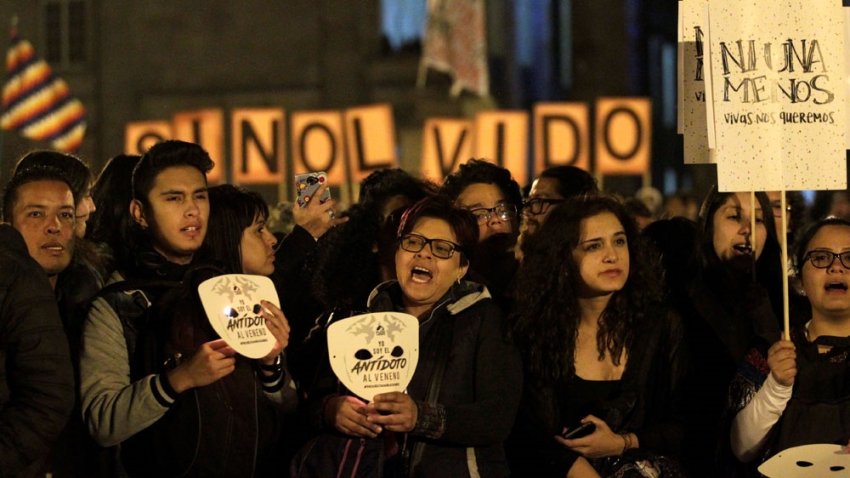
Business owners in northwest Colombia are conspiring with death squads to assassinate social leaders and prevent the restitution of land that was stolen during Colombia’s decades-long armed conflict, according to several Colombian NGOs.
Three renowned NGOs — the Popular Training Institute (IPC), Forging Futures and the Association of Land and Peace Claimants (ARTP) — have accused well-known business owners of plotting the assassination of leaders that have been involved in the monitoring of the land restitution program that was introduced in 2011 and seeks the safe return of millions of displaced farmers.
The accused business owners are involved in the palm oil, cattle ranching and banana industries that have been tied to paramilitary violence on multiple occasions.
More than 800 business owners and corporations teamed up with death squads in the 1990s and the beginning of this century to expand their land properties by displacing small farmers, according to a recent study.
Details about what could be the biggest land heist since the Spanish colonisation — estimates put it at 15% of Colombia’s national territory — are hard to come by as state authorities have neglected to investigate most of the alleged land thieves and terrorism supporters.
At the same time, much of Colombia’s displaced population are unable to return home because the new owners of their former properties oppose restitution, some going as far as to create so-called “anti-restitution armies.”
Colombia’s chief prosecutor promised in May the results of more than 16,000 criminal investigations into the country’s private sector’s ties to illegal armed groups.
However, so far the process — which ties in with the 2016 peace deal with the left-wing Revolutionary Armed Forces of Colombia (FARC) guerrillas — has been marred by violence with social leaders and land claimants systematically murdered in an attempt to bring it to a halt.
More than 311 social leaders have been assassinated by death squads and assassins since the deal was signed, while ex-combatants of the FARC have been systematically targeted since they downed weapons.
According to a report delivered on July 26 by the head of the United Nations mission in Colombia: “Only in the last four months of this 2018, 22 ex-combatants who were not part of the dissidents have been murdered. In total, since the abandonment of arms in August of last year, there are 51 people in the process of reincorporation who have been murdered”.
The inability of Colombia’s government to protect the demobilised guerrillas has led to an upsurge in violence reminiscent of what was seen in the late 1980s and early 1990s against the Patriotic Union.
Paramilitary assassinated thousands of political activists when the FARC tried to enter politics after a deal with former president Belisario Betancur in 1985.
In addition to the slaughter of former FARC fighters, there has been a wave of violence against social leaders, human rights activists, journalists and land claimants as those opposing the implementation of the peace deal seek to bring it to a halt.
Far-right group Aguilas Negras (Black Eagles) has vowed to “exterminate” all Colombia’s human rights defenders and social leaders, calling them “guerrillas in disguise.”
Colombia’s defence minister Luis Carlos Villegas has denied the existence of the Aguilas Negras and has clashed with Inspector General Fernando Carrillo who claimed last week that members of the security forces are taking part in the mass killing of leaders.
[Compiled from Colombia Reports.]